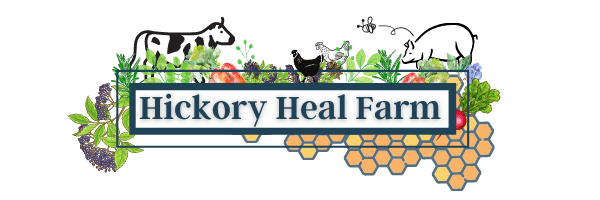Got the winter blues? Then escape with our Winter Escape Herbal Tea. Brew this exhilarating infusion of herbs and spices that make a wonderfully warm and fruity tea to sip on cold winter days and lift the spirit. The smell flows out of the bag. Nice and refreshing, lifting the spirit.
Caffeine-Free.
Ingredients: Organic marshmallow, organic ginger, organic licorice root, organic wild cherry, organic lemon balm, and lemon peel.
Brewing Recommendation:
1. Heat 1 cup of water to 208 degrees.
2. Add 1-2 teaspoons of tea into a tea strainer.
3. Pour water over herbs and steep for 5-10 mins. Remove the tea strainer and herbs. Sweeten if desired, and enjoy!
15+ Cups per bag, 1oz.
So many good herbs in this tea. Let’s focus on Marshmallow roots. The root is high in calcium and is an excellent source of trace minerals, including chromium, iron, magnesium, and selenium (Pedersen, 2011).
So what is so fantastic about Marshmallow is demulcent, diuretic, anti-inflammatory, expectorant, and emollient actions (Hoffman, 2003). As an infusion or decoction, marshmallow’s mucilage relieves sore, dry throats by coating and cooling the irritated tissues with its slippery gel. Marshmallow root also helps the gut by providing a source of prebiotics to feed the beneficial bacteria that populate the gut. Who doesn’t need help with more prebiotics? Depending on the preparation, it is helpful for both diarrhea and constipation. For diarrhea, soak the powdered root in just a small amount of water for at least an hour and then drink the mucilaginous result; the small amount of water used in this process will leave the rest of the powder capable of absorbing more water in the gut. Now, this may not be the most pleasant drink for some of you, but I know you can become accustomed to taking this mucilaginous tea in time. For constipation, a teaspoon of powder can be soaked in 8 ounces of water to form a fiber drink to help move gut contents out of the system.
While the above is focused on Decoctions and Infusions, alcohol tincture has its benefits, too. A Marshmallow Root tincture was found to have antibacterial activity against many periodontopathic bacteria. (Iauk et al., 2003). A 2011 report on the pharmacological activity of Althea officinalis summarized a number of international studies, concluding that the plant indicates significant pharmacological activity in the cough, irritation of the throat, gastric inflammation, anti-tumor, antiviral, and immunostimulant. Anti-bacterial and anti-inflammatory activities, effects on mucociliary transport, adhesion of polysaccharides to buccal membranes, and cough reduction are reported (Shah et al., 2011). So many botanical studies are from international sources.
Preclinical research has hinted at potential hepatoprotective, neuroprotective, and anti-malarial actions. The use of marshmallow root for coughs and sore throats has also been studied. To evaluate the traditional use of marshmallow root for irritated mucosal tissue, researchers Deters et al. (2010) tested aqueous extracts on epithelial cells and dermal human fibroblasts. The authors of the study concluded that “Aqueous extracts and polysaccharides from the roots of A. officinalis are effective stimulators of cell physiology of epithelial cells, which can prove the traditional use of Marshmallow preparations for the treatment of irritated mucous membranes within tissue regeneration.” Go back and read that again.
One double-blind and placebo-controlled clinical trial in Iran studied the use of marshmallow extract in 63 patients for four weeks, with the patients showing a statistically significant reduction of dry cough associated with angiotensin-converting enzyme (ACE) inhibitors. The placebo group showed no change (Rouhi and Ganji, 2007). Uh! Hello! Notice that ACE inhibitor action? Where else have we seen this? Think, Think, Think……
Marshmallow root is safe for children three years and over. A 2009 assessment of marshmallow root in the United Kingdom cited post-marketing surveillance of two studies on children using marshmallow root. It said that while the studies were not controlled or randomized, they “… are, however, considered sufficient to support the traditional use as a demulcent for the symptomatic treatment of oral or pharyngeal mucosa irritation and associated dry cough.” (European Medicines Agency, 2009).
One other resource you can quickly read over is located on the Pubmed site;
Pubmed says, Aqueous extracts and polysaccharides from Marshmallow roots (Althea officinalis L.): cellular internalization and stimulation of cell physiology of human epithelial cells in vitro. https://pubmed.ncbi.nlm.nih.gov/19799989/

















Reviews
There are no reviews yet.